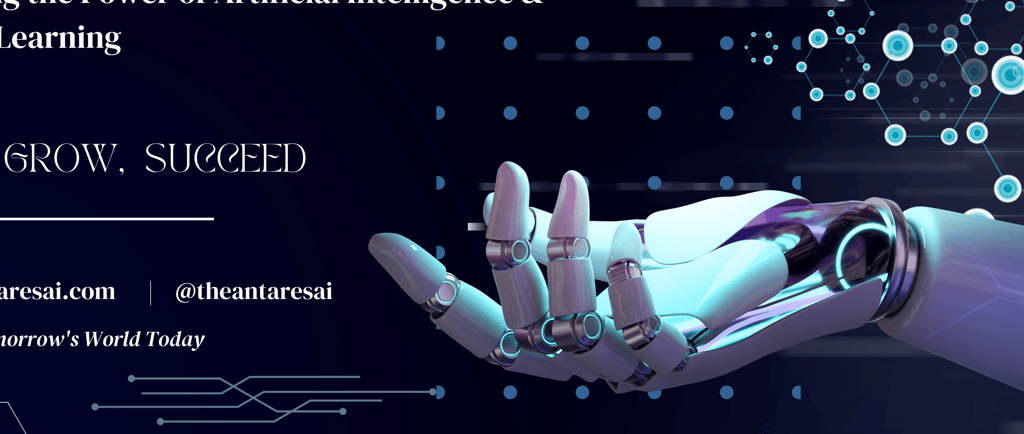Revolutionising Marketing
Harnessing the power of Artificial Intelligence and Machine Learning
Jasleen Kaur
10/10/2024


In today’s fast-paced and highly competitive business landscape, staying ahead of the curve is essential for success. One revolutionary technology that has transformed the marketing industry is Artificial Intelligence (AI) and Machine Learning (ML). AI and ML are enabling marketers to make sense of vast amounts of data, automate processes, and deliver highly personalized experiences to customers.
In this blog, we will explore the impact of AI and ML in marketing and highlight some real-world examples of their implementation.
1. Data-Driven Decision Making:
AI and ML algorithms have the ability to analyze massive volumes of data, extracting valuable insights and patterns that can inform marketing strategies. By leveraging these technologies, marketers can make data-driven decisions, resulting in more effective campaigns and improved customer experiences.
Example: Netflix Technology Blog utilizes AI and ML algorithms to analyze user behavior, preferences, and viewing patterns. This data is then used to recommend personalized content to individual users, increasing customer satisfaction and retention.
2. Customer Segmentation and Targeting:
AI and ML algorithms can segment customers based on various attributes, such as demographics, behavior, and preferences. This segmentation enables marketers to create highly targeted and personalized campaigns, improving engagement and conversion rates.
Example: @Amazon uses AI algorithms to analyze customer purchase history, browsing behavior, and social media activity to segment customers into specific groups. This enables them to deliver personalized product recommendations and targeted advertisements, resulting in increased sales and customer loyalty.
3. Chatbots and Virtual Assistants:
AI-powered chatbots and virtual assistants have become increasingly popular in marketing, providing instant customer support, personalized recommendations, and interactive experiences. These intelligent bots can handle routine queries, freeing up human resources for more complex tasks.
Example: #Sephora, a cosmetics retailer, developed a chatbot that offers personalized makeup recommendations based on customer preferences, skin type, and desired look. The chatbot engages customers in real-time conversations, driving sales and enhancing the overall shopping experience.
4. Predictive Analytics:
Predictive analytics, powered by ML algorithms, enables marketers to forecast consumer behavior, identify trends, and optimize marketing campaigns. By analyzing historical data, marketers can anticipate customer needs, optimize pricing strategies, and improve overall marketing ROI.
Example: #CocaCola uses ML algorithms to analyze social media conversations, sentiment analysis, and real-time sales data to predict consumer demand. This allows them to optimize production and distribution, ensuring the right products are available in the right locations at the right time.
5. Content Creation and Personalization:
AI and ML technologies have revolutionized content creation and personalization. Natural Language Processing (NLP) algorithms can generate personalized content, optimize email subject lines, and create dynamic landing pages that resonate with individual users.
Example: The New York Times utilizes AI to deliver personalized content recommendations based on readers’ interests and reading habits. This enhances user engagement and encourages readers to consume more content, driving ad revenue and subscriptions.
Artificial Intelligence and Machine Learning have become indispensable tools in the modern marketing landscape. By leveraging these technologies, marketers can gain valuable insights from vast amounts of data, deliver personalized experiences to customers, automate processes, and make data-driven decisions. As AI and ML continue to evolve, marketers must embrace these technologies to stay competitive and drive business growth in the digital age.
By harnessing the power of AI and ML, marketers can unlock new opportunities, enhance customer experiences, and achieve remarkable results in the ever-evolving world of marketing. The future of marketing lies in the intelligent application of these technologies, and those who embrace them will undoubtedly lead the way in this exciting new era.


